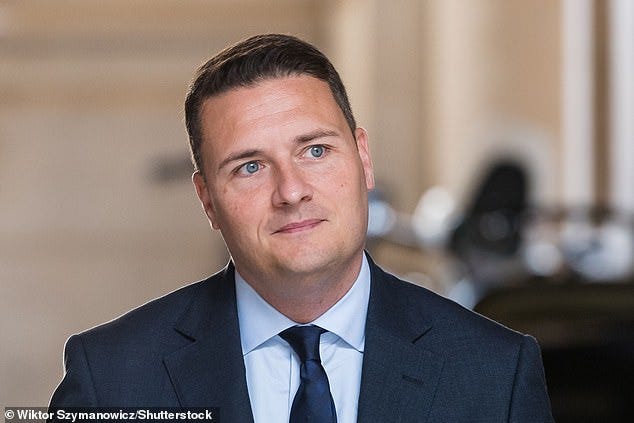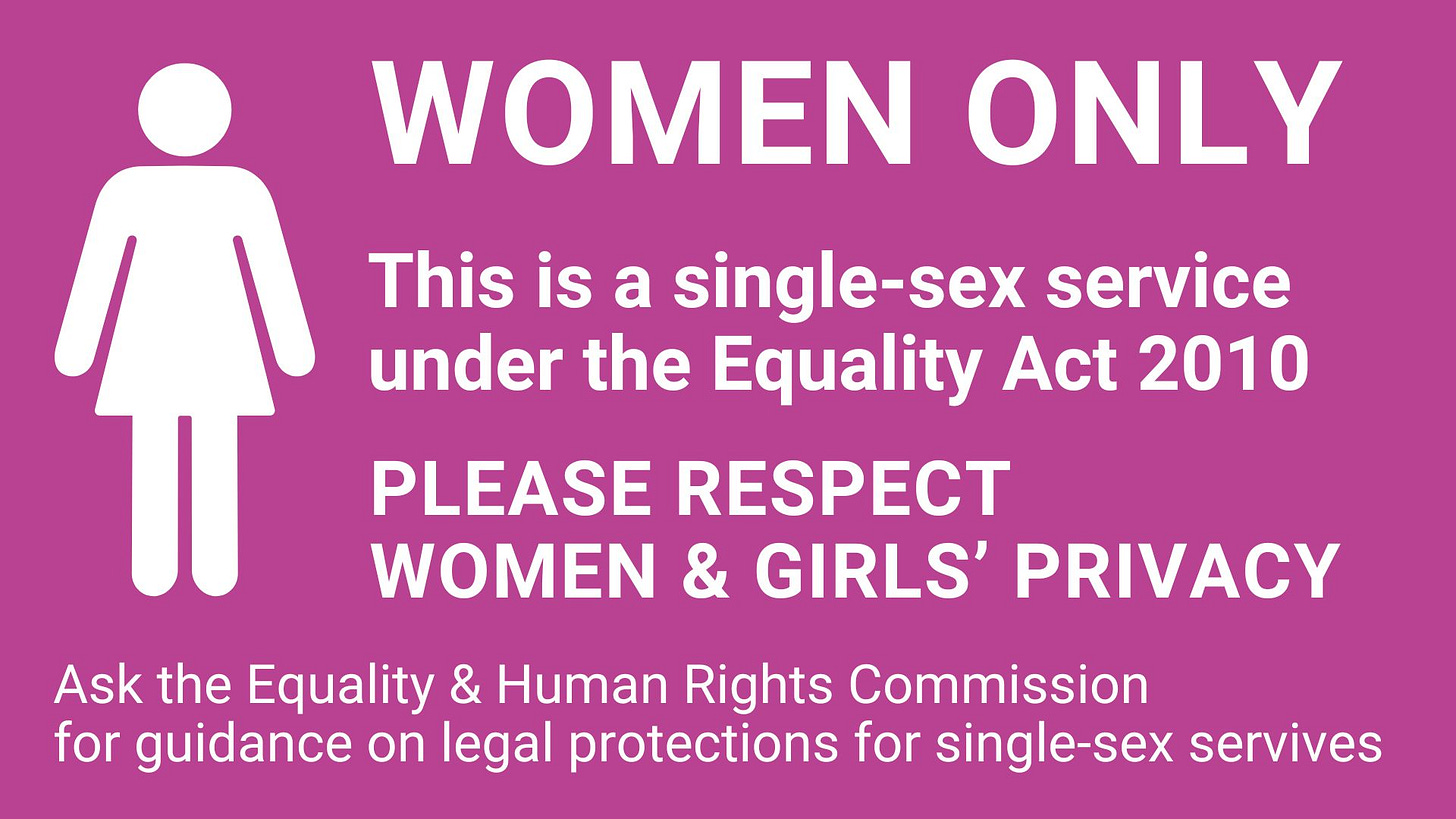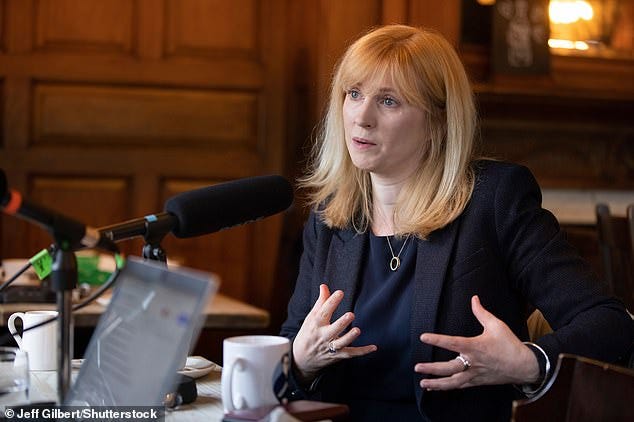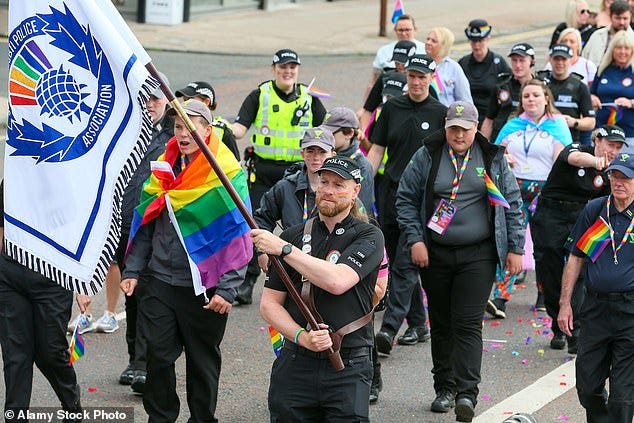The Good, the Bad and the Ugly is actually the third in Sergio Leone’s classic Dollars Trilogy. All about buried treasure and, of course, good against evil.
Spoiler alert! The scene below is the final ‘Mexican standoff’ between Blondie ( Clint Eastwood), Tuco ( Eli Wallach) and Angel Eyes ( Lee Van Cleef).
Please keep the suggestions coming for The Western Season 😊
Thanks as ever to two wonderful readers for suggested pieces.
Conversion Practices Bill
As mentioned in my emergency stop press addition yesterday, the King’s Speech included a commitment to a Conversion Practices Bill which is to be ‘trans-inclusive.’ The Speech did not include loosening the requirements for gender recognition certificates or ramping up hate crime (which were also Labour Manifesto commitments). This, at least means , we can hone in on conversion therapy ( while we also keep an eye on the puberty blockers and schools guidance issues - and see further on Equality and Human Rights Commission - EHRC - guidance below). We have had a bit of practice on this since, in the previous Parliament, there were short lived bills on this in both the Commons and the Lords and, of course, ‘gender critical’ groups put in powerful submissions on these - so no need to re-invent the wheel! But we can probably improve the wheel!!
By the way, if this Bill becomes an Act in due course, I also think there will then be an excellent incompatibility challenge under the Human Rights Act - but no need to go into that at this stage.
However, obviously, we cannot start working on this until we see the detail of the proposed Bill. Nevertheless, evidence of the non existence (virtually) of conversion therapy and the importance of talking therapy for confused children will be needed and James Esses has got us off to an excellent start!!
‘Conversion therapy’ researchers accidentally prove no need for a new law
JUL 18, 2024
It must be a tricky thing being an impartial academic researcher. Especially when you’ve been given grant funding from the Government to show the need for a ‘conversion therapy’ ban and your research points instead in the opposite direction.
I’ve just been given a tranche of some forty documents from a Freedom of Information request to the Northern Ireland Executive. They all relate to its research project into so-called ‘conversion therapy’, one of several such studies from around the UK and Ireland. However, as I ploughed through perfectly innocent chains of emails about which departmental logo to use and '“can we move the meeting back by half an hour?” a rather startling finding turned up. I’ll come to that in a moment.
Northern Ireland’s Department for Communities, under the previous Minister, Deirdre Hargey MLA (Sinn Fein), commissioned research into ‘conversion therapy’. It was led by LGBT groups, including the Rainbow Project – Northern Ireland’s version of Stonewall. In partnership with two academics from Queen’s University Belfast and Ulster University, a study was designed that would supposedly provide much-needed detail for lawmakers to work with.
The funding proposal itself had extremely high aspirations. They aimed to find evidence of the prevalence of harmful practices across various communities, describe the approaches and techniques that are involved, delineate the demographics of those who are targeted, and show what the outcomes are for those people. An exhaustive plan. Value-for-money.
One might have envisaged hundreds, if not thousands, of interviewees to inform the research. The reality could not be further from this. It was a small-scale project that hoped to interview just 15 people and see what they had to say. When it was published in April this year, it had not even managed to do that.
In fact, the project under-delivered at an astonishing level. In the end, only ten interviews took place. The academics merely laid out the contributions verbatim with no appreciable analysis.
James concludes:
Of course, you might argue that ten accounts of abuse warrants new legislation. However, crucially, do the stories recounted in this study demand new laws, or are they in fact already dealt with appropriately by the law? I certainly think it’s the latter. Whereas the risks of passing such legislation and potentially criminalising parents and therapists who do anything other than affirm a child to transition may be seismic. The fact that the UK government has just announced such legislation in yesterday’s King’s Speech, is troubling to say the least.
These researchers have inadvertently proven that a new law is not needed. Try as they might, the case studies simply don’t support the rhetoric.
The full piece is here:
https://www.jamesesses.com/p/conversion-therapy-researchers-accidentally?r=7ogxh&triedRedirect=true
Puberty Blockers
In recent updates we have been discussing Wes Streeting’s apparent determination to make the temporary ban on prescription of puberty blockers by private clinics into a permanent ban and we have also mentioned the judicial review challenge to the temporary ban led by the Fox Killer….sorry, Jolyon Maugham of the Good Law Project. I must say that I am beginning to think that Mr Maugham is mentally unhinged!!
Martin Beckford in The Mail Online ( Fox-clubbing barrister who is leading legal challenge against Labour Government ban on puberty blockers claims parents will 'tip the ashes of their dead transgender children outside Downing Street' 18 July) reports:
Bereaved parents will tip the ashes of their dead transgender children outside Downing Street as a result of the continuing ban on puberty blockers, a controversial barrister has claimed.
Jolyon Maugham dramatically stepped up his attack on new Health Secretary Wes Streeting for making permanent the Conservatives' emergency restrictions on gender medicine for young people.
The Good Law Project director, notorious for clubbing a fox to death with a baseball bat while wearing a kimono, is leading a High Court challenge against the ban and claimed on Friday it will 'kill trans children'.
Since then he has posted 25 questions for Mr Streeting on Twitter/X and claimed that the UK is 'no longer safe for trans families' because of 'transphobic health policy'.
Health Secretary Wes Streeting
And yesterday morning he went further still, writing: 'Spare a thought today for Wes Streeting, unlikely to be loved by Cabinet colleagues for his decision, only a week into the new Government, to front run the King's Speech, torpedo relations with the LGBT+ community, and perpetuate the Tories' wicked culture war.
'And don't underestimate the political tail of Wes Streeting's decision. His colleagues will slowly be coming to terms with him locking them into a future of bereaved parents tipping ashes outside No 10 and a revival of mass die-ins wherever they go.'
Dusty - can someone please contact the local Mental Health Team?
Jolyon Maugham. A fox
The full article is here:
Equality and Human Rights Commission Guidance
This new guidance from EHRC is very surprising and extremely confusing…and wrong. I hope a legal challenge to it will proceed as soon as possible unless the EHRC have a re-think. I didn’t think we would need to be off the legal blocks this early!! Hopefully we won’t.
Discriminatory advert guidance updated
Published: 16 July 2024
Related information
Britain’s equality watchdog, the Equality and Human Rights Commission, has today updated its guidance for those placing or publishing advertisements, to help them ensure such adverts are lawful and do not discriminate.
A discriminatory advert is one which restricts jobs, goods, services or facilities to people with a protected characteristic covered by the Equality Act 2010. They are unlawful except in very limited circumstances where the Equality Act specifically allows such a restriction.
The refreshed guidance provides greater clarity around ‘occupational requirements’, under Schedule 9 of the Equality Act 2010, where an employer can require a job applicant or employee to have a particular protected characteristic if it is necessary for the role.
The EHRC is aware of evidence that some employers have incorrectly applied occupational requirement exceptions. There appears to be a particular lack of clarity about the law where the protected characteristic is ‘sex’.
The updated guidance makes clear that where an occupational requirement relates to ‘sex’, the law says this means a person’s legal sex as recorded on their birth certificate or Gender Recognition Certificate.
This guidance will support employers and individuals to understand where adverts are lawful and where they are potentially unlawful and discriminatory.
Baroness Kishwer Falkner, Chairwoman of the Equality and Human Rights Commission, said:
"As Britain’s equality regulator, we have a duty to promote and uphold Britain’s equality laws.
“We recognise the need for clarity regarding the lawful use of the occupational requirement exemptions set out in Schedule 9 of the Equality Act. So we have taken action to provide it.
“Those publishing job adverts must be familiar with their obligations under equality law. They can feel confident that our updated guidance will help them to comply with the law.
Employers should also be aware that the EHRC will take action to uphold the Equality Act. Where we are made aware of potential misapplication of Schedule 9 provisions, we will continue to assess and take action to resolve these on a case-by-case basis.”
Notes:
The EHRC’s review of the previous guidance on discriminatory adverts concluded that some areas of the document relating to ‘occupational requirement’ exemptions required updating to be legally correct.
The points covered in the updated guidance include an example of a lawful occupational requirement under Schedule 9 of the Equality Act 2010 (a Sikh community health advocate); an example of objective justification where an occupational requirement applies (a changing room attendant of the same sex as those using the facilities); and clarification that a ‘sex-based’ occupational requirement to be a woman under Schedule 9 refers to a person’s legal sex as recorded on their birth certificate or Gender Recognition Certificate and cannot include transgender women who have not obtained a gender recognition certificate, as they do not have legal status as women under the Equality Act 2010.
The guidance advises on what a discriminatory advert is, when it is lawful to restrict a job or service to particular groups, how a complaint can be made and the EHRC’s approach to discriminatory adverts.
Sex Matters explain why the EHRC are wrong:
EHRC issues guidance on discriminatory adverts ( 16 July)
As the EHRC says, an advert is a notice or announcement – written or oral – promoting a job opportunity, product, service or event. Adverts might appear in newspapers or magazines, on the television or radio, in shop windows or emails or on a website. They can also appear on doors and buildings.
Adverts tell you whether a job, product or service is suitable for particular types of people. Under the Equality Act it is usually unlawful to restrict services to people with a particular protected characteristic (such as an age, sex, race or belief). But it is sometimes lawful, such as where the service requires bodily privacy , or is only safe for people of a particular age, or if the job requires someone of a particular religion.
Here are some examples of adverts that restrict goods, services or jobs to people with a particular protected characteristic. See if you can work out which are lawful and which are unlawful:
A. “No Ladies” signs in pubs, 1970s
B. Poster for “mother’s only fitness”
C. “No Irish, No Blacks, No Dogs” sign (apocryphal)
D. “Ladies” sign on toilets, showers or changing rooms
E. La Leche League charity description of its service for breastfeeding mothers
F. “Waitress wanted” sign
G. “Women only” sign at Kenwood Ladies’ Pond, London
H. Covent Garden Health Spa website (men only)
I. Advert for a female care worker
J. Playground sign with age restrictions, Camden
K. “No TERFs on our turf” sign, pub, Canal Street, Manchester
L. “No pregnant women” sign on a fairground ride
M. Advert for a Christian youth worker
N. Description of a women’s domestic violence service
O. Women’s changing room sign, Primark
Most of these adverts are examples of lawful discrimination allowed by the Equality Act. Four are unlawful: A is unlawful sex discrimination, C is unlawful race discrimination, F is unlawful sex discrimination and K is unlawful belief discrimination.
As the EHRC says, the Equality Act allows services to be restricted, often requiring the restriction to be objectively justified as a “proportionate way of achieving a legitimate aim”. This justification applies at the general level to the rule or requirement: it does not need to be argued separately for each individual the restriction applies to.
For example, the men’s health spa is a service provided for men. It does not need to provide a separate objective justification for excluding any individual woman.
Everyday signs are lawful
The EHRC says that there are “very limited circumstances under the Act when employers or service providers can target particular groups in their adverts”.
In fact, as these signs show, while these situations are limited in the sense that they are carefully defined, they are not uncommon.
The new EHRC guidance says “an advert should clearly explain the basis and reasons for the restriction”, but as the examples above show, this is rarely necessary in practice, particularly when it comes to services.
Just because an advert or sign is not conveyed in legalistic language, with small print about a schedule in the Equality Act, it does not mean that it is not lawfully using one of the exceptions. A lawful restriction might be conveyed with no words at all.
This is an advert that conveys that the service is provided for men only.
Do you have to use legal language?
Schedule 9 of the Equality Act provides an exception which allows employers to restrict employment to people with a protected characteristic without committing unlawful discrimination, where the application of the requirement is a proportionate means of achieving a legitimate aim. This is termed a lawful “occupational requirement”. There are of course other occupational requirements or restrictions, such as having a particular qualification, which are lawful and don’t involve a protected characteristic at all.
Often employers will mention Schedule 9 in the advertisement (such as where a job is for women only) – but they are not required to.
The EHRC’s new guidance says:
“Occupational requirements under Schedule 9 must relate to having a particular protected characteristic as defined in the Equality Act 2010. The protected characteristic of ‘sex’ means a person’s legal sex as recorded on their birth certificate or their Gender Recognition Certificate (GRC). This means that a sex-based occupational requirement that an applicant is a woman – as is common within specialist support services for women, such as rape counselling – will include women who are recorded female at birth and also transgender women who have obtained a GRC.
However, Schedule 9 also permits an occupational requirement to exclude transgender persons where it is objectively justified, and this can include those who have obtained a GRC. A ‘sex-based’ occupational requirement to be a woman under Schedule 9 cannot include transgender women who have not obtained a GRC, as they do not have legal status as women under the Equality Act 2010.”
This means that an employer has a statutory defence against either a sex-discrimination claim or a gender-reassignment discrimination claim (discrimination on the basis of being “transsexual” in the language of the Equality Act) if they seek to employ an actual woman for a job.
We think the EHRC’s explanation of this unhelpfully conflates how an employer thinks about and conveys a requirement in practice and the language a lawyer might use to defend it if this was challenged in court (particularly given the EHRC’s view that sex in the Equality Act does not mean what most people think it does).
For example, a breastfeeding charity advertises to employ women as breastfeeding counsellors who have themselves breastfed their child and have undertaken a course of training to become accredited breastfeeding counsellors. According to EHRC guidance it should state in the advert that the positions are open to women but excluding some women who are transgender persons (males who have a gender-recognition certificate saying that they are women), but that the position may be open to other women who are transgender persons (females who identify as transgender and do not have a gender-recognition certificate) and to men who are transgender persons (females who have a gender recognition certificate saying they are men).
This is clearly preposterous (but is the kind of thing that organisations are now having to waste time arguing about).
We think the law is actually much simpler than this. The reason for a restriction of a post as a breastfeeding counsellor or for a rape-crisis centre to women only is based on the objective justification that it is a role that requires a woman to do it. This excludes all men (including those who might have changed the sex recorded on their birth certificate or other documentation).
A previous version of the guidance gave a helpful example of a company providing bicycle courier services advertising for couriers who “must be able to ride a bicycle” – while this might exclude some disabled people, the requirement is necessary for the role and applying it is a proportionate way of ensuring applicants can do the job.
Someone like Mridhul Wadhwa (a man who identifies as a woman) is not suitable for a job requiring a woman, whether or not he has a gender-recognition certificate.
Given the pressures that are now being placed on employers and service providers, we think that the EHRC must be absolutely clear in explaining that organisations can continue to put up signs and adverts that ordinary people can understand, where there is objective justification for a rule, without having to resort to complex legal small print or confusion about everyday language.
If a man who identifies as a woman (and who or may not have a gender-recognition certificate) sees a sign or other advertisement for a job or service that says it is for women only – perhaps it is a job vacancy for a counsellor in a rape-crisis centre, a breastfeeding support worker or a menopause counsellor – he should understand that he is not a suitable candidate.
As the old sign displayed in shops said:
Similarly, if a man who identifies as a woman (and who may or may not have a gender-recognition certificate) thinks it would be appropriate for him to seek access to a women’s rape-crisis centre, a breastfeeding support group, a menopause support group, women-only massage lessons, a women-only beauty spa and intimate waxing service, women’s showers at the gym, a female-only sauna, changing room or toilet, or any other service lawfully provided for women only, he would be in the wrong.
The reason is because he is a man.
If he doesn’t think the rule is lawful he can sue, but the service provider or employer has a statutory defence, whether he brings a sex-discrimination claim or a gender-reassignment discrimination claim.
The EHRC guidance suggests that signs or symbols in ordinary language, or simple verbal instructions such as “These changing rooms are for women only” are not clear communication of a lawfully restricted single-sex service. It suggests that there is a separate class of advertisements and signs that invoke esoteric and contested legal concepts that have to be used before you can simply say “No men allowed” in a service, space or role.
https://sex-matters.org/posts/updates/ehrc-issues-guidance-on-adverts/
British Medical Association
Absolutely shocking that some doctors’ groups have lobbied the BMA to disavow the Cass Review. Given that there has been no news following the vote yesterday, I take it that that attempt has thankfully failed. EDI Jester deals with the matter here:
https://edijester.substack.com/p/lady-cass-versus-the-quacks
Rosie Duffield
Martin Beckford in The Mail Online ( Labour MP Rosie Duffield hits out at primary school for sharing image of young students with trans flag and warns 'tiny' pupils would have no concept of gender identity 16 July) reports:
A Labour MP has hit out at a primary school for getting young children to pose with a trans-inclusive pride flag.
Rosie Duffield said the 'tiny' pupils could not understand the concepts of sexuality and gender identity they were being encouraged to celebrate, and should be left alone to discover them when older.
She spoke out after campaigners spotted that the London school had posted publicly on social media a photograph of an infant school class marking 'Pride Day' last month.
The picture showed 20 young children, some of whom were holding up a large Progress Pride flag - which updates the traditional rainbow to include pale pink and blue stripes to represent transgender people - while others waved paper versions.
One young boy held a sign stating: 'I can't even think straight.' Ms Duffield, who has faced abuse from within Labour for her opposition to gender ideology, wrote on social media: 'These tiny children can have no real concept or meaningful understanding of sexuality/gender identity - theirs or anyone else's.’
The picture which showed 20 young children, some of whom were holding up a large Progress Pride flag
Labour MP Rosie Duffield
The full article is here:
This was dealt with in an interview with James Esses and the awful Peter Tatchell on GB News:
https://twitter.com/JamesEsses/status/1813941215857135682
Police Scotland
I have written to my new Labour MP ( no, I didn’t vote for her!) about, amongst other things, the captured Police. Here’s another good example.
Jessica North for The Scottish Daily Mail ( Anger as Police Scotland paying officers to join gay pride marches despite major staffing crisis and controversial cutbacks to crime-fighting 16 July) reports:
Scotland's police officers will be paid to take part in Pride parades despite the force cutting back on fighting crime, the Mail can reveal.
Uniformed officers are being urged to represent the overstretched force at LGBTI marches in exchange for pay or a day off in lieu.
While hundreds will be on active duty policing the marches, senior officers have requested that other staff join the parades to show support for the marchers.
The 'astonishing' move will also see plain-clothed officers on light duties given special Pride badges.
It comes after Police Scotland shelved inquiries into minor crimes as it battles a financial black hole and the lowest number of officers in 16 years.
More than 5000 took part in "Glasgow's Pride Mardi Gla" parade from Glasgow Green, through the city centre to finish in George Square
Rank-and-file officers last night accused top brass of setting a 'dangerous precedent' by paying officers to take part in 'highly political' parades.
Calum Steele, the former general secretary of the Scottish Police Federation (SPF), said: 'Moving to a situation where officers are now paid to march (and actively encouraged with the inducement of payment to do so) is an astonishing development and has to raise questions over the effective use of resources.'
The full article is here:
Schools Guidance
Excellent submission from Transgender Trend to the previous government’s consultation on draft schools guidance. Though this guidance could be improved from a Terf point of view, we wait with bated breath to see whether the new Secretary of State for Education will at least confirm this guidance as it stands including the fact that ‘gender identity’ should not be taught in school ( and see above re Rosie Duffield!!).
https://www.transgendertrend.com/rshe-draft-statutory-schools-guidance-submission/
Freedom of Speech in Australia
Thanks as ever to Feminist Legal Clinic.
Increased powers for the Australian eSafety Commissioner will threaten freedom of speech (17 July)
HRLA [ Human Rights Law Alliance] client and former Australian Breastfeeding Association counsellor Jasmine Sussex has experienced first-hand the way that government censorship of online speech works in practice.
Jasmine is a passionate and publicly vocal defender of women’s rights and breastfeeding mums. She was subject to censorship after she publicly contended that ‘men cannot breastfeed’ in response to a trans-identifying man’s public declaration to have done so.
Jasmine received a notice from Twitter advising her that her twitter comments would be withheld in Australia as they had “broken the law”. Twitter also advised that they had been contacted by a “government entity or law enforcement agency” claiming her tweets were unlawful.
In addition to being censored, Jasmine is now facing a complaint of vilification under the Queensland Anti-Discrimination Act from the trans-identifying man in question alleging that Jasmine has “incited hatred, contempt and serious ridicule” by publicly criticising this person’s pro-transgender activism on social media.
HRLA is providing Jasmine with pro-bono legal assistance to oppose this complaint in the Queensland Civil and Administrative Tribunal and to defend her right to stand up for the sex-based rights of women.
While the government’s review will examine an expansion of the eSafety Commissioner’s powers, it is important to note that the Commissioner already has substantial powers under the Online Safety Act 2021 to police online speech and to coerce internet platforms to remove content.
Jasmine’s case is a clear example of the way that such powers can be misused by bureaucrats to silence free debate about transgender ideology.
Source: HRLA
Endpiece By Liz
#BeMorePorcupine






























Dear readers
Some great news via the Jester 😊
https://edijester.substack.com/p/helen-webberly-struck-off?utm_campaign=email-half-post&r=20xc5g&utm_source=substack&utm_medium=email
Dusty
I remember Clint Eastwood from Rawhide, the first thing he did, and I can still sing the theme tune. After watching the clip, I couldn’t help thinking that it would have been easier if they’d just shaken hands and agreed to differ. 😁
There’s a very basic letter template in the FS Union newsletter to complain to MPs about the conversion therapy ban. No rest for the wicked!
Excellent work by Sex Matters. Thank goodness someone is on the ball. It doesn’t bode well when the EHRC doesn’t understand the law.
The Police, Jolyon Maugham!, captured teachers, the BMA……ffs.
Powerful endpiece Liz. It’s a bit depressing to see when it was made and realise that we are still saying the same bloody things to deaf ears.
Thanks, great work Dusty.